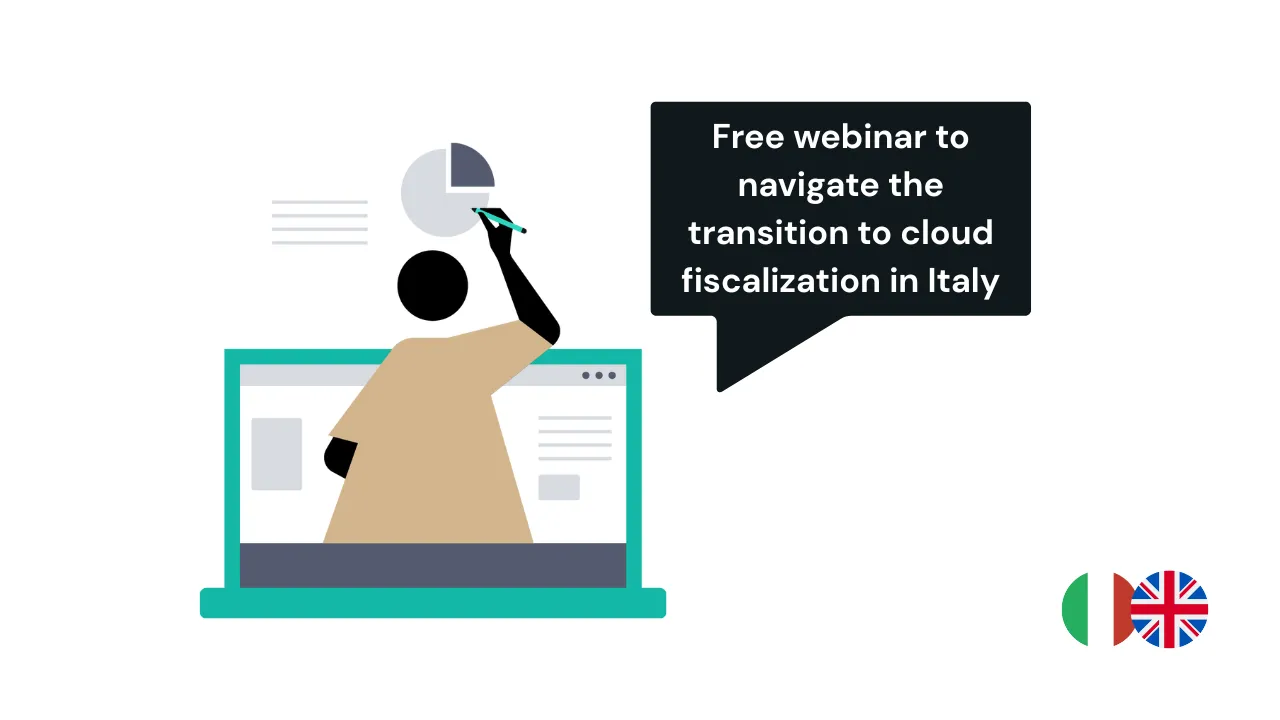
The electronic receipt and commercial document in Italy: Complete guide
In Italy, the commercial document – known as the electronic receipt until 2019 – is part of a digitalization strategy designed to improve tax compliance and combat tax evasion. The obligation began on July 1, 2019, for companies with annual revenue exceeding €400,000 and was extended, as of January 2020, to all VAT-registered businesses.
The goal is to simplify reporting to the Italian Tax Authority (AdE) and ensure greater transparency in the management of transactions.
Italy on the way to full tax system digitalization
The introduction of the electronic receipt and telematic register in Italy in 2019 marked the beginning of tax system digitalization, but required costly certified telematic cash registers. As of 2024, new regulations will soon allow businesses to use certified software solutions, like fiskaly SIGN IT, offering more flexibility and lower operating costs for this new era of the electronic receipt without RTs in Italy.
e-invoicing in Italy
e-invoicing in Italy is governed by a regulatory framework that has progressively introduced obligations for public administrations, businesses, and professionals. Since 2019, Italy has been the first EU country to make e-invoicing mandatory for both B2B and B2C transactions, with specific procedures in cases where an invoice is not required.
The regulatory framework for electronic invoicing in Italy, established by Legislative Decree 148/2018 and Decree 55/2013, applies to public authorities and other entities. B2G e-invoicing is mandatory for central administrations, in line with the European Directive 2014/55/EU. Initially limited to ministries, tax offices, and national security agencies, it was extended to all public bodies in 2015. From January 2019, Italy became the first EU country to make electronic invoicing mandatory nationwide for B2B and B2C transactions as well.
In cases where an invoice is not required (Article 22 of Presidential Decree 633/1972), sales must be certified with a digital receipt. Taxpayers exempt from the invoicing obligation can thus certify revenues through electronic receipts, with data stored and transmitted to the Italian Tax Authority (AdE) and a commercial document delivered to the customer.
The electronic receipt: Legal framework and transmission to the Agenzia delle Entrate (AdE)
The electronic receipt (also known as telematic or digital receipt), enables retailers to electronically store and send transaction data to the Italian Revenue Agency. Introduced alongside e-invoicing from January 1, 2021, it aims to combat tax evasion by ensuring each sale is digitally recorded and transmitted to the agency.
Introduced by the Fiscal Decree and reinforced by the Budget Law, it mandates that since January 1, 2020, all businesses in Italy, exempt from the obligation to issue an invoice and irrespective of their size, must issue electronic receipts. Among others, this applies to:
- Hotel, food, and beverage services
- Passenger, vehicle, and transport service
- Services in business establishments open to the public
This data needs to be digitally transmitted to the Italian tax authority using a certified telematic register via the AdE web portal or invoicing systems.
Businesses are required to digitally transmit the details of each receipt to the tax authority on a daily basis. This ensures real-time tracking of sales and allows the tax authority to monitor economic activities more effectively.
What data should the electronic receipt include?
With the implementation of electronic storage and transmission of sales information, customers now receive what is called a commercial document, commonly still referred to as a "receipt" instead of a traditional fiscal receipt. The commercial document is generated automatically via RT or the Fatture e Corrispettivi portal. Defined by the Decree of December 7, 2016, the document needs to state the following details:
- issue date and time
- sequential number
- issuer information (company name, legal name, or full name of the issuer, location of the business)
- goods or services description
- transaction totals
- customer tax information (tax code, VAT) if requested
Transactions are recorded daily and sales data must be reported to the Revenue Agency within 12 days, using RT printers.
When does the electronic receipt or commercial document need to be issued?
Article 1 of the interministerial decree of December 7, 2016, regulates the issuance of the commercial document. Receipts are usually provided in paper form but can be sent electronically if agreed upon with the customer. The document must ensure "readability, management, and preservation over time"..
Sales data should be stored upon the completion of the transaction at the POS, and the commercial document or fiscal invoice must be delivered to the customer.
Which taxpayers need to issue an electronic receipt?
For retail transactions, issuing an invoice is not mandatory unless specifically requested by a customer. Instead, businesses are required to electronically store and send daily transaction data to the AdE. This approach replaces the need for issuing paper or fiscal receipts and eliminates the traditional "correspondence register," as outlined in Article 24 of DPR 633/1972.
This new obligation applies to all entities covered by Article 22 of DPR 633/1972, except for certain transactions exempted by the Ministerial Decree of May 10, 2019.
An electronic receipt can be issued using a telematic cash register, which must be connected to the Revenue Agency. This system needs to comply with certain parameters and receive certification from the Agency.
There are different ways to guarantee the transmission of telematic fees, in order to issue a receipt:
- via fiscal printers (RT)
- via RT servers for point of sales with at least three cash registers
- through the web portal of the Italian Fiscal Agency (AdE)
Penalties for non-compliance with the issuance of receipts
Businesses that fail to comply with the electronic receipt regulations may face penalties from the tax authorities, including fines and further inspections.
Recent changes from the 2021 Budget Law altered the penalty system for telematic receipts and cash register use. Key updates include:
- a 90% fine on the tax for missing, late, or incorrect data submissions
- a €100 fine for non-tax impacting errors
- the potential suspension of business licenses after four violations within five years, ranging from 3 days to 1 month, or 1 to 6 months for amounts exceeding €50,000
All you need for telematic fees, receipts, and invoices: now natively in the cloud
fiskaly SIGN IT empowers businesses to tackle the digital future with confidence and maintain tax compliance. For insights on how fiskaly can assist your company in navigating the regulatory changes in Italy, feel free to reach out.
We're committed to guiding you towards a simpler, more digital future and supporting businesses in Italy during this transition.



